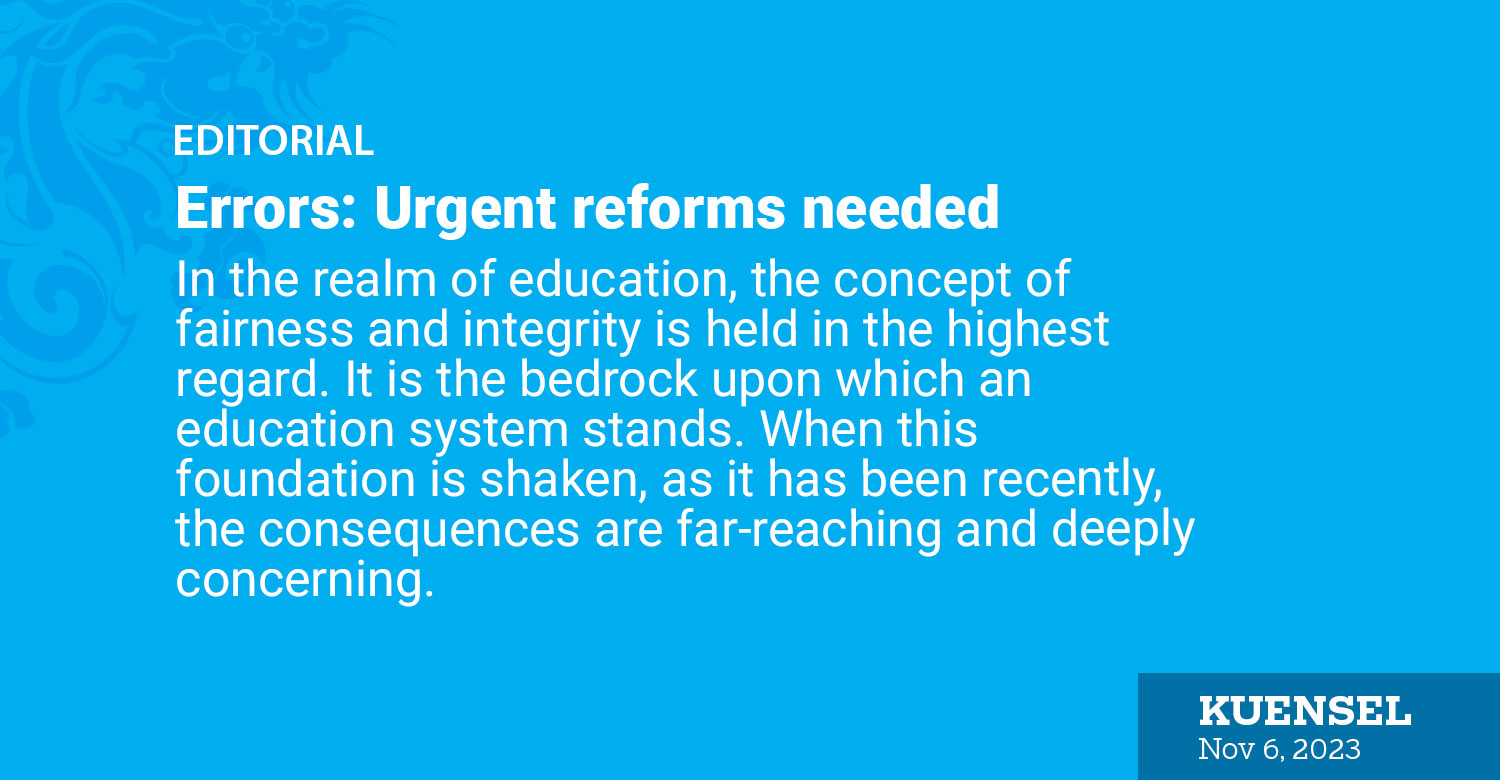In the realm of education, the concept of fairness and integrity is held in the highest regard. It is the bedrock upon which an education system stands. When this foundation is shaken, as it has been recently, the consequences are far-reaching and deeply concerning. The revelation of errors in trial examination question papers developed by the Bhutan Council for School Examinations and Assessment (BCSEA) is not merely a matter of academic missteps; it is a stark commentary on the quality, professionalism, and standards of the entire educational system.
In a nation where education is not just a means to personal success but a cornerstone of national progress, the recent controversies surrounding the BCSEA’s examination papers should not be taken lightly. The errors in the trial examination question papers have not only left teachers and students in some schools confused but have also cast a shadow of doubt on the fundamental principles of fairness and reliability in the educational assessment process.
The BCSEA, as the custodian of Bhutan’s educational standards, bears the primary responsibility for ensuring the quality of examination materials. While no system is impervious to human error, especially when creating complex question papers, the level of errors detected suggests a lack of due diligence and quality control in the examination paper development process. These errors are not mere typos but significant lapses that can have severe repercussions for students’ futures.
It is essential to emphasise that the fallout from such errors goes beyond mere academic confusion. Errors in examination papers undermine the trust that students, parents, and educators place in the system. They erode the faith that hard work and dedication will be justly rewarded, and that the path to success is a fair and level one. This breach of trust has the potential to impact students’ motivation and belief in the value of education.
Moreover, it is not just BCSEA that bears the brunt of this debacle. The teachers who were involved in the preparation of these question papers, under BCSEA’s supervision, also find themselves under scrutiny. The professional standards of educators are on display when it comes to the quality of examination materials. The errors reflect not just on the BCSEA, but also on the entire teaching community. It is disheartening to consider that our educators, who mold the future of the nation, may not be holding themselves to the highest standards.
This revelation is a matter of serious concern that demands a comprehensive response. It is an opportunity for the BCSEA to reevaluate and improve its quality control measures, emphasising the importance of meticulous review and verification in the examination paper development process. Moreover, it is an opportunity for the educational community in Bhutan to recommit to the principles of excellence, professionalism, and dedication in the pursuit of knowledge.
In light of these developments, it is imperative that BCSEA takes immediate steps to rectify the errors and provide clear guidance to schools and students. It should also consider measures to prevent such occurrences in the future, including strengthening the review and approval process for examination materials.
In this pursuit of excellence, the errors in the BCSEA’s examination papers should be viewed not as a stain on the system but as an opportunity for introspection, reform, and a rededication to the principles of quality, professionalism, and fairness that are the cornerstones of a thriving education system.


